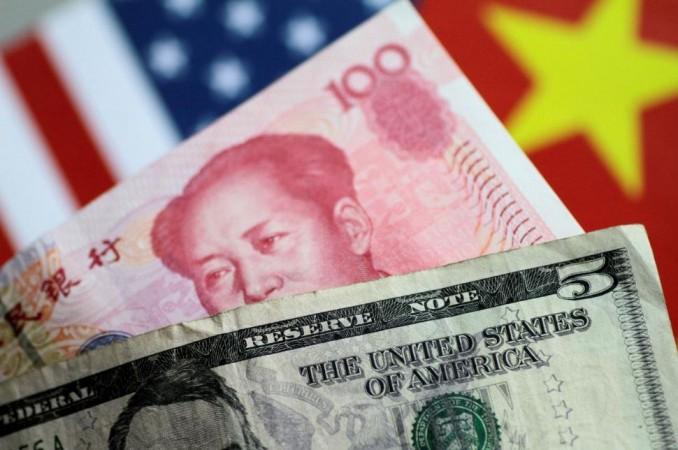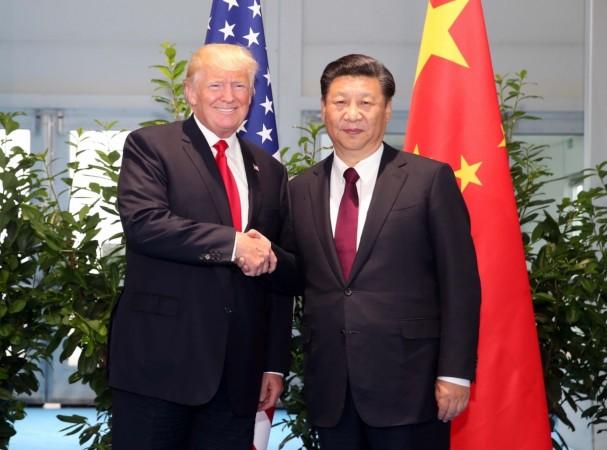
The United States imposed fresh 15 per cent tariffs on Chinese goods on Sunday after China imposed duties on crude, despite hints of resuming negotiation this month amid bruising trade talks.
Beijing has imposed additional tariffs on some of the US goods that are listed on its $75 billion target list. The country, last month had warned about tariffs on US good beginning in parts on September 1 that had led US President Donald Trump to respond with 5 per cent duty on some $550 billion in total targeted Chinese goods.
The extra tariffs by China were levied on 1,717 items of a total of 5,078 products originating from the United States. The rest of the additional tariffs is reported to begin from December 15.
Its duties on US crude was the first time fuel was targeted since tensions between both the countries escalated over the issue of trade imbalances.
The US on Sunday began collecting 15 per cent tariffs on a variety of Chinese goods worth $125 billion including footwear, smartwatches, flat-panel televisions, smart speakers and Bluetooth headphones.
The escalating trade dispute led markets in Asia and oil prices to fall on Monday.
President Donald Trump called for "freedom" from US reliance on China and urged finding "alternatives" to the supply chain. "This is about American Freedom. Redirect the supply chain. There is no reason to buy everything from China!" he wrote on Twitter. Last week, Trump called for companies to close their Chinese operations and relocate production to the US.
Despite the tariffs, Trump told reporters that the scheduled face-to-face talks between both the sides will take place in September.
"We are talking to China, the meeting is still on, as you know, in September. "We'll see what happens, but we can't allow China to rip us off anymore as a country," he told reporters.
Last week, both the US and China had confirmed that the September meeting was on the agenda.

Chinese Commerce Ministry spokesman Gao Feng at a press meet last Thursday said: "The most important thing at the moment is to create necessary conditions for both sides to continue negotiations."
However, both the sides have not yet confirmed the date for the meeting.
While the US President stated that the tariffs would not affect the country's consumers, executive vice president of the American Apparel & Footwear Association, Steve Lamar told Reuters that the tariffs play a crucial role as they come before the most important selling season of the year.
"They claim that they are hurting China but, in reality, they are hurting us. Prices will go up, sales will go down, jobs will be lost," he said, adding that the United States "can make progress with China when we engage with them in calm, productive talks, not when we make it more expensive for Americans to get dressed every day."
The American Federation of Labor and Congress of Industrial Organizations (AFL–CIO) President Richard Trumka told Fox News on Sunday that Trump's confrontation with China was right but condemned him for doing it "the wrong way". "To take on China, there has to be a multilateral approach. One country can't take on China to try to dry up its overcapacity because they just send it through to you in other ways," he said.
Global economy ramification
Experts have raised concerns that the ongoing trade war between the two largest economies will likely result in a global recession.
While Trump had dismissed the claims last week with assurances that the "country is doing really well" and accused previous "horrible" trade deals, Chinese currency Renminbi weakened to a new 11-year low.
According to JP Morgan's report late last month, the levied US tariffs would cost the average American household $1,000 a year.
The Chinese economy is currently going through its lowest growth rate in 27 years. The National Bureau of Statistics data revealed that factory activity has slowed down for the past four months.
China's reaction
A Chinese state media, Xinhua agency, said that the US should learn how to behave like a responsible global power and stop acting as a "school bully".
The official People's Daily said that tariffs cannot stop China's development. "China's booming economy has made China a fertile ground for investment that foreign companies cannot ignore," it reported.
"Obviously, decoupling from China is decoupling from opportunity and decoupling from the future. American companies can understand this better than some people in the US," the newspaper's 'Zhong Sheng' column on comments on foreign affairs said.









